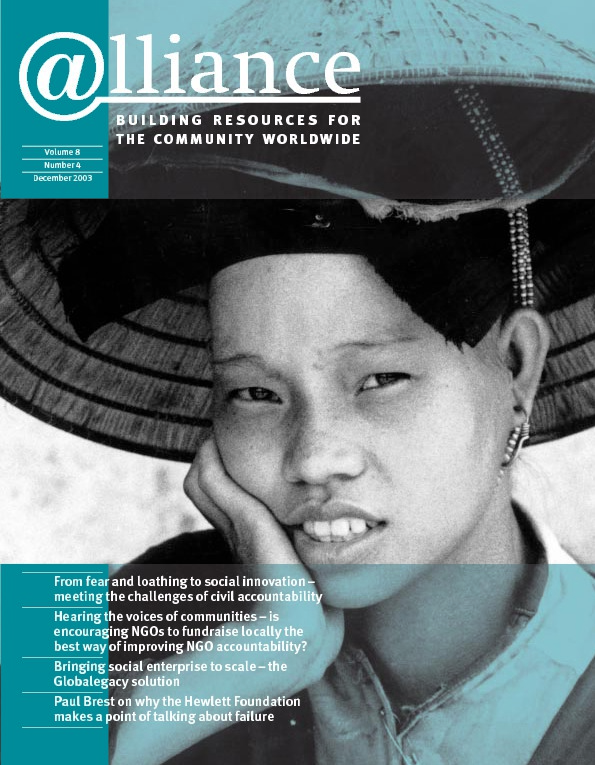Forward-thinking companies today recognize the need to engage in development and regeneration issues, and many are doing so through employee volunteering programmes. Some of these are undoubtedly very good. But in some cases companies simply send skilled professionals for an afternoon into low-wealth communities to carry out unskilled tasks, which isn’t giving either communities or staff what they need. Globalegacy’s Stretch business seeks to deliver real value both to companies and to social entrepreneurs in poor communities.
Stretch is based on three fundamental assumptions:
· CEOs will put more weight behind initiatives to advance community development if they know this can directly help address some of their company’s core issues such as leadership development.
· A greater number of skilled professionals will be interested in applying their skills on a worthwhile development assignment if this can also advance their own career.
· Local entrepreneurs want and need ongoing and skilled business help to grow their business – not unskilled volunteering, not ad hoc help, and not just consulting.
The Stretch model
Stretch’s business model is to develop skilled business leaders by sending them to work full-time for up to six months with a local community entrepreneur, helping them to develop successful enterprises to alleviate poverty in their communities. Stretch is currently operating in East London, one of the poorest areas in the UK.
Promising individuals from organizations such as the Bank of England, Vodafone, BT and Cadbury-Schweppes, with the support of regular training and coaching provided by Stretch partner LEAD International, have to learn to adapt to a non-corporate, community business environment. The experience leaves them better prepared to work creatively and independently and respond to local needs. But first and foremost this is about delivering results for the community.
Starting in May, Stretch brought five skilled Fellows to help social entrepreneurs in East London work on ambitious enterprises such as a housing scheme using recycled shipping containers, a hands-on professional college, and a taxi fleet distributing profits to the local community. Following a successful pilot, a new group of Fellows from current and new client companies will start in January 2004. Over time, Stretch and Globalegacy plan to expand to reach out to a growing number of social entrepreneurs in East London and in other communities across the world, starting with Johannesburg.
A low-cost housing business using recycled shipping containers
Last May, Andrew Ingleby, an experienced Project Manager at the Bank of England, joined John Hills, an experienced engineer, at Leaside Regeneration, to help develop a start-up business that recycles shipping containers to provide high-quality, affordable space for under-served communities.
Leaside’s vision is to bring together a partnership of ‘unusual suspects’ – architects, designers, building companies, regeneration bodies and community organizations – to create new housing, business space, and health and education centres, all with a trendy design and at affordable cost, using recycled shipping containers. Once the community-led flagship project is up and running, Leaside will have the opportunity to expand nationally and internationally – there are an estimated 3 million unused shipping containers worldwide.
Andrew left the comfort of his career at the Bank of England to ‘get in the “real world” after 16 years in the same organization and to try and get some practical experience to back up the theory learnt through Open University courses’. Working with John for four months, he clarified the mission, vision and strategy for the business, and started setting up a working group, which has now made recommendations on how to move forward.
‘This experience gave me a much broader outlook than you can get from a single organization,’ comments Andrew. ‘I brought structure to the community, and in return I gained further confidence to get past obstacles rather than be defeated by them. I have learnt so much from everyone involved, I can see I will be drawing on this experience for a long time.’
‘Andrew was able to pick up very quickly what we are about,’ says John. ‘He brought very precise thinking to our problems, cutting through the clutter to say, “This is the problem, now what do we do about it?” As a result the project moved quickly from an initial concept to an identifiable project with a very specific target. The Stretch model works because it targets people who are motivated and with the skills we need to join us for a minimum of three months and provide effective input.’
For more information on Stretch and its current activities with Globalegacy in East London, contact Managing Director Nathalie Mackin nathalie@globalegacy.com or visit http://www.globalegacy.com





Comments (0)